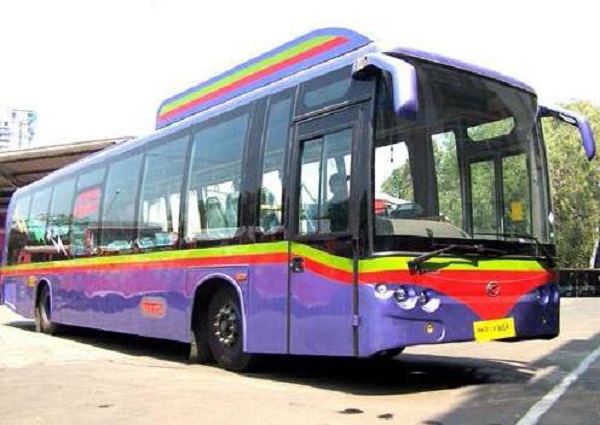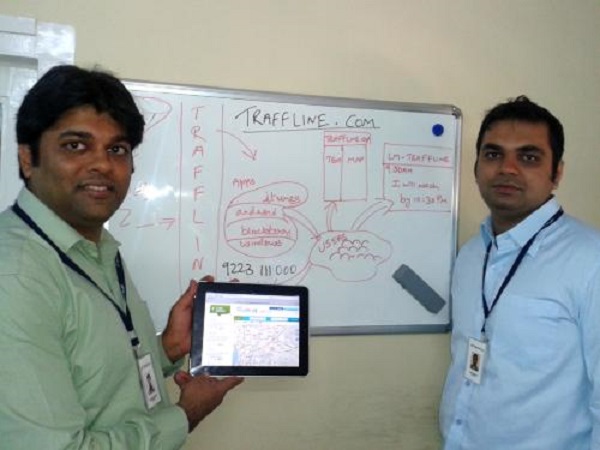Authentic, global brands arrive in a bag at your doorstep every month. For the fashion-conscious Indian, Fab Bag spells delight.
by Ritika Bhandari Parekh
There is a new bag in town and unlike the faux Chanel tote you may be flaunting, every item in this bag is authentic and luxurious. This bag – FabBag, for the uninitiated – comes from a startup that relies on creativity and hard work to deliver in a fast-growing Indian beauty industry.
FabBag was conceived as a beauty and grooming discovery service based on the subscription model. One can sign up online to receive a monthly bag of the best products from top global brands right at their doorstep.
When IIM-A alumni Vineeta Singh (31) and Kaushik Mukherjee (31) were enjoying their evening coffee at a Powai-based café, little did they realise that the idea of FabBag will be a major talking point among fashion lovers. The idea grew on them, and they decided to launch operations in 2012 with a 13-member team handling sourcing, customer delight, operations, technology, marketing and accounts.
Lancome, Sally Hansen, Burt’s Bees, Clinique, and Dior are just a few brands that have joined hands with the FabBag team. Members are entitled to receive both full-size and travel-sized products worth more than thrice the value for as low as Rs 333.
FabBag’s appeal lies in its simple promise of making expensive or hard-to-find niche brands more accessible to prospective buyers. “With newer global brands entering a fast-growing Indian beauty market, we just felt that we were in a ‘right-place-at-the-right-time’ situation that had to be taken to the next step,” says Kaushik.
“Both of us had a very different view of the business – while Vineeta was excited about the beauty and grooming angle, I was supercharged about building an Internet product that could revolutionise the way brands reached out to customers in India,” adds Kaushik. The company was started with an initial investment of Rs 10 lakh and managed to raise funding in its first year of operations.
Their prior experience of working on startups helped fine tune FabBag and garner the support of over 1.2 lakh fans on Facebook. Its member base is increasing on social media platforms such as Twitter (2100+ followers), Pinterest and Instagram.
Putting the bag together
Whoever thinks that procuring the cosmetics for each month’s FabBag is a simple task, should meet Vineeta to get the clear picture. She says, “Planning a FabBag involves more  science than one can imagine. If there’s anything we’ve done in the last two years, it is learning from every box and every bag that we have shipped and collecting data points from our members for every new product that we have shipped.”
science than one can imagine. If there’s anything we’ve done in the last two years, it is learning from every box and every bag that we have shipped and collecting data points from our members for every new product that we have shipped.”
While signing up, each member fills up a fun quiz that tells the company a bit about their beauty preferences and helps them deliver products they are most likely to love. The team’s planning process starts two to three months in advance, where they take a look at the last three months’ collection of products, the audience segmentation and the brands.
Vineeta says, “We don’t repeat products, and hand-pick specific problem-addressing products from members who flag a beauty need. Lastly, we’re very selective about which brands we allow into a bag. Each brand is rated on multiple parameters of price-point, SKU mix, quantity, exclusivity, before we decide on that.”
The fashion-conscious Indian
The bag which includes a skincare product, a beauty product and a fragrance or bath product. While a large share of their subscriptions come from beyond the metros, they realised that despite being value-conscious, the Indian female is fiercely loyal and a vocal evangelist of anything she finds happiness in.
Kaushik explains, “A flip-side is that, since purchase decisions are largely emotional, a breach of service is treated akin to a breach of trust – in a way, this is good for young companies like ours. It teaches us the discipline of being sensitive to every member’s needs.”
They believe that the Tier II and Tier III cities’ demographic is a tough nut to crack but has already shown enough proof of the fact that a huge market exists for products that fall in to the ‘prestige’ and ‘premium’ brackets.
On challenges and future plans
The FabBag was earlier known as Velvette; the re-christening happened when prospective members found it difficult to locate them in the first attempt. “Our product has been fairly viral and when our members told their circles of influence about us, it was tedious to spell out the brand name every time,” Kaushik says, “By October 2013, we knew that we had to rebrand it to an easy to remember name and with ‘FabBag’ – we knew it was exactly what we had been looking for.”
The team now offers a Men’s FabBag, too. With the emergence of men’s grooming products in almost every brand and research that indicates 40 per cent of beauty salon revenues are attributed to men – they decided to run a pilot for a smaller batch of men’s bags. “Sure enough, we sold out in four days flat,” says Kaushik.
So why should everyone have a FabBag? They explain through one of their member’s words – because “it’s like receiving a carefully-selected surprise birthday gift every month of the year!” And a gift is always welcome!
(Pictures courtesy Fabbag)










